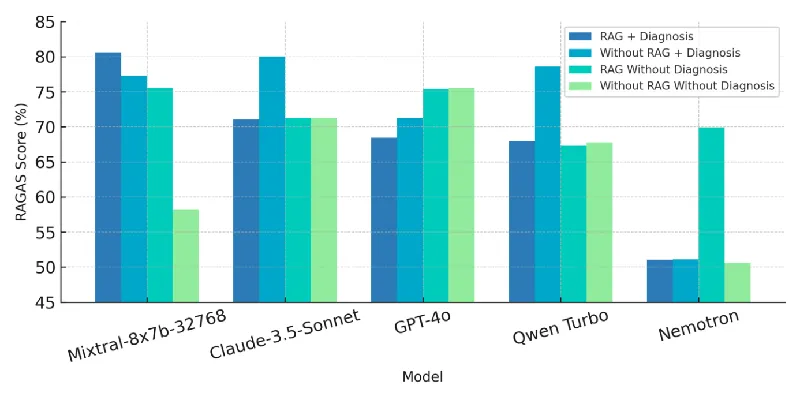Small Language Models Outshine Giants: A Breakthrough in Rheumatology Decision Support

Recent research has unveiled a significant advancement in clinical decision-making within rheumatology, highlighting the unexpected effectiveness of smaller language models (SLMs) over their larger counterparts. Conducted by a team from the University Hospital Düsseldorf and FOM University of Applied Sciences, this study emphasizes how SLMs can deliver higher diagnostic and therapeutic accuracy while consuming less energy and resources, making them an ideal choice for resource-limited healthcare settings.
The Promise of Language Models in Healthcare
Artificial intelligence (AI) continues to reshape various fields, with language models standing out for their potential to streamline clinical workflows. These models can analyze vast amounts of text, identify patterns, and generate evidence-based treatment recommendations. However, their application in healthcare has been hampered by concerns about their infrastructure requirements—especially for larger models, which often necessitate extensive IT resources and can be economically burdensome.
Smaller Models, Bigger Impact
The research demonstrates that SLMs, which boast fewer than 100 billion parameters in contrast to the hundreds of billions characteristic of larger models, can outperform their larger counterparts in critical areas of rheumatology. The study evaluated five state-of-the-art models, including the well-known GPT-4o and the novel Mixtral-8x7b-32768. Findings revealed that Mixtral, combined with a technique known as retrieval-augmented generation (RAG), achieved the best accuracy in both diagnosis (72%) and treatment recommendations (73%) without the need for prior diagnosis input.
The Role of Retrieval-Augmented Generation (RAG)
RAG is a technique that enhances language models by incorporating real-time external information—such as clinical guidelines—during the decision-making process. This dynamic integration enables models to mitigate known limitations, such as outdated training data or "hallucination" phenomena, which can lead to inaccuracies. In this study, models that leveraged RAG showed substantial improvements in performance, reinforcing the need for up-to-date information in clinical applications.
Expert Oversight: A Necessity
Despite the impressive capabilities of these language models, the study underscores that no model achieved specialist-level accuracy consistently. Experts in rheumatology highlighted the importance of human oversight in interpreting results, as minor errors, although statistically insignificant, could lead to serious clinical risks. The necessity for domain-specific validation remains paramount, as current AI systems can support but not replace clinical expertise.
Implications for Healthcare
With rising patient loads and a shortage of rheumatologists in Germany, utilizing AI-driven tools can alleviate bottlenecks in diagnosis and treatment. The study points out that average wait times for a confirmed rheumatoid arthritis diagnosis can exceed 14 months, reflecting the urgent need for improved efficiency in clinical settings. The deployment of SLMs like Mixtral could not only speed up diagnostic timelines but also enhance patient care by delivering timely and accurate treatment recommendations.
Conclusion: A New Era of Decision Support
This groundbreaking research highlights the promise of small language models in enhancing clinical decision support within rheumatology. As SLMs demonstrate the capacity to perform effectively with lower resource requirements, their application could signify a shift towards more accessible, efficient healthcare solutions. Nonetheless, continuous advancements and validations are essential to ensure these technologies can reliably support healthcare professionals in their critical roles.